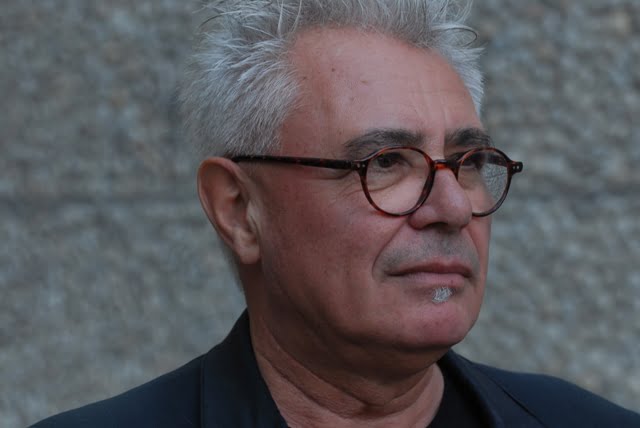
Gerhard Falkner
- Germany
- Zu Gast beim ilb: 2009, 2012
Gerhard Falkner was born in Schwabach in 1951. His first collection of poetry »so beginnen am körper die tage« (1981; tr: in this way the days begin on the body) attracted much attention and polarized opinion with its untimely form-conscious poems between immediate and reflected of timeliness and classic modernity. In »der atem unter der erde« (1984; tr: the breath beneath the ground), he continued adapting the contemporary awareness that was typical in his work from the beginning through a classic stance toward language. This was, so to speak, a countermovement against the then-current poetry of the »new subjectivity«, showing an increase in richness of form and allusion. In »wemut« (1989; tr: melankoly), his most important volume of poetry until then, which he simultaneously announced would be his last, Falkner emancipated himself from the general principle of having one’s own and unique tone and from the closed form and created new approaches to the long poem and other poetic concepts.
After this, he lived in Mexico and the USA for some time, publishing the anthology »AmLit. Neue Literatur aus den USA« (1992; tr: AmLit: New literature from the USA). In »Über den Unwert des Gedichts. Fragmente und Reflexionen« (1993; tr: On poetry’s lack of value. Fragments and reflections), Falkner not only attacked the lack of appreciation for poetry, but also attempted – above all using the means provided by post-modern mixed texts – to establish a position for poetry in a post-industrial society. With »X-te Person Einzahl« (1996; tr: Xth person singular), he broke from the intention he had declared in 1989. This volume was followed by the long Berlin poem »Gegensprechstadt – ground zero« (2005; tr: Counter speaking city – ground zero), which was performed open air on Athens’s Roman Agora with the group MiniMaximum in 2013, and »Hölderlin Reparatur« (2008; tr: Hölderlin repair), for which he was awarded the 2009 Peter Huchel Prize. Explaining its decision, the jury praised Falkner’s »capability of expressing a sublime voice in a time of damaged language worlds«. In the novella »Bruno« (2008) he intertwines the story of a writer’s failure with the bizarre story of a well-known »problem bear«. His bilingual poetry collection »Kanne Blumma« (2009; tr: no flowers) in Franconian dialect and standard German, opened new accesses to dialectical poetry. He set foot on new territory also with his »Der letzte Tag der Republik / The Last Day of the Republic« (2011), a collaboration with art film director Reynold Reynolds, dealing with the demolition of the GDR parliamentary building, the Palace of the Republic. In collaboration with Constantin Lieb and Felix von Boehm, he produced the »Pergamon Poems« (2012); five short films with poetry pay homage to the famous frieze. Falkner’s newest poetry book »Ignatien. Elegies am Rande des Nervenzusammenbruchs« (2014; tr. Ignatias. Elegies on the edge of a nervous breakdown) begins his collaboration with the Swiss artist Yves Nezthammer, who has produced the first short films to individual Ignatias.
For his oeuvre, Falkner was awarded the Spycher Prize (2006), the Kranichstein Literature Prize (2008), and the Wolfram von Eschenbach Prize (2014). In 2013, he was the first Fellow for Literature at the newly founded Tarabya Cultural Academy in Istanbul. In 2014, he held a residence stipend at the Villa Aurora in Los Angeles.
Gegensprechstadt – ground zero
Kookbooks
Idstein, 2005
[Musik: David Moss]
Bruno
Berlin Verlag
Berlin, 2008
Hölderlin Reparatur
Berlin Verlag
Berlin, 2008
Pergamon Poems
Kookbooks
Berlin, 2012
[Ü: Mark Anderson]
Ignatien
Elegien am Rande des Nervenzusammenbruchs
[Mit Filmstills von Yves Netzhammer]
Starfruit
Berlin, 2014
[Ü: Ann Cotten]
